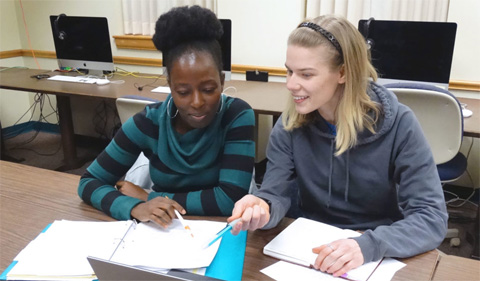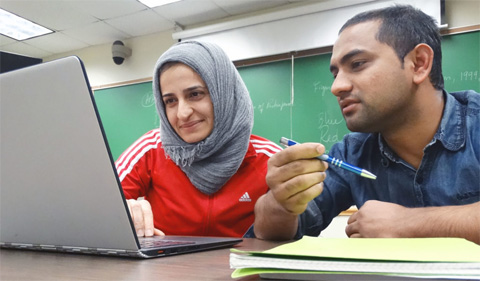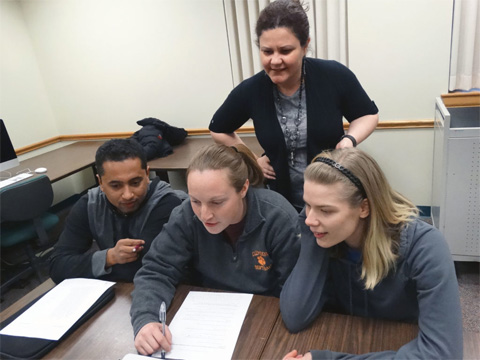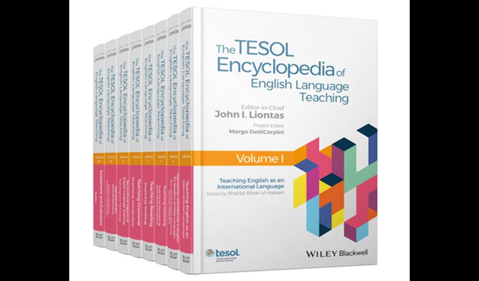
Francisca Lekey (left) and Anna Palmer (right) organize their research for the next phase of their thesis.
By Mary Vandeman and Dr. Edna Lima
There is no such thing as one-size-fits-all in education. This is why the English Language Improvement Program at OHIO believes in the power of hybrid learning – to offer more than the traditional classroom experience typically provides.
“What I love about hybrid learning, which is when you have some classes online and some face-to-face, is the focus on the student,” ELIP Lecturer Dr. Edna Lima shares.
In her ELIP 5160 class “Writing up Research: Thesis & Dissertation Writing,” Lima is working with graduate students in the sciences. Lima says they appreciate the individualized content.
“In a regular face-to-face class, everyone has to study everything together, whether they need it or not. But in my hybrid class, I can suggest specific modules and topics for students based on their projects and interests,” she says. And students still get to work together with their classmates.
Anna Palmer, graduate student in Environmental Studies, agrees about hybrid classes>
“The one-on-one attention and motivation I receive from my instructor and classmates really help me meet important deadlines and organize all of my hard work,” Palmer says.
For half the classes during the semester, students meet together in their classroom. Instead of listening to lectures, they participate in dynamic discussions, activities, and collaboration. Sharing their writing and getting feedback is crucial to their development as writers in the sciences.

Gulakhshan Hamad (left) and Bishnu Karki (right) work on their own assignments in ELIP 5160: Writing up Research.
With hybrid classes comes more flexibility. Students can complete their lab experiments and write up their research according to their own schedules and timelines. They can also focus on what they need. “I have been learning the proper scientific way that each section and chapter can be developed, which has been extremely effective now that I am finalizing the sections of my proposal,” says Shiv Subedi, a graduate student in the Physics & Astronomy Department.
Students work on a research paper for a class or publication, or write parts of their thesis or dissertation. Palmer likes that she can focus on what she needs.
“As a native English speaker, I assumed that I knew how to write. ELIP 5160 taught me what content should be in each section of my thesis, and provided useful linguistic tools that make each section as strong as possible.”

Bottom left to right: Shiv Subedi, Kristyn Brandenburg, and Anna Palmer use their in-class time to discuss new ideas with ELIP 5160 Science instructor, Dr. Edna Lima.
Ultimately, academic writing can be daunting, even for the most experienced graduate students. Taking a hybrid course dedicated to academic writing in the sciences can be a lifesaver.
The 3-credit hour ELIP 5160 hybrid course is available each spring semester. For more information on professional and academic communication courses offered by the ELIP’s academic & global communication services, visit the website.



















Comments